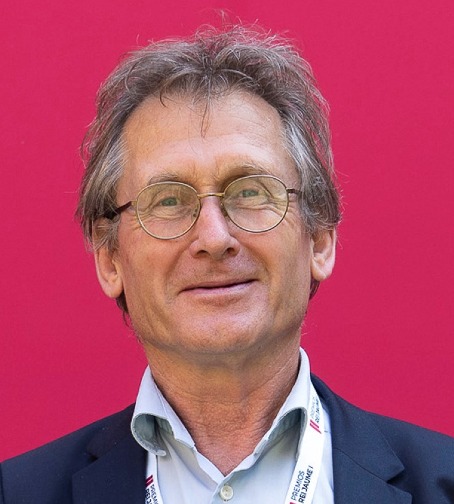Ben Feringa elected member American Philosophical Society
Prof. Ben Feringa has been elected member of the American Philosophical Society (APS), one of the oldest learned societies in the United States, composed of top scholars in a wide variety of disciplines. The APS was founded in 1743 by Benjamin Franklin. The Society has approximately 1,000 elected members, of whom about 160 are international members.

Ben Feringa (1951) is professor of synthetic organic chemistry at the University of Groningen and was awarded the Nobel Prize in Chemistry in 2016. He received the prize together with Jean-Pierre Sauvage (France) and Sir James Fraser Stoddart (UK) for their work on the development of molecular machines. Feringa has achieved breakthroughs in various fields of chemistry, including organic synthesis, catalysis, supramolecular chemistry and nanotechnology. His research performance is so exceptional that he is generally regarded as one of the world’s most creative and productive chemists.
The American Philosophical Society is one of the oldest learned societies in the United States. With the goal of “promoting useful knowledge,” the APS honors scholars and scientists, offering intellectual fellowships and elected memberships, and engages their work with semi-annual meetings, publications, lectures, exhibitions, and access to their internationally-recognized research library.
Read the full list of 2024 APS Members on the American Philosophical Society website.
| Last modified: | 25 June 2024 3.29 p.m. |
More news
-
03 April 2025
IMChip and MimeCure in top 10 of the national Academic Startup Competition
Prof. Tamalika Banerjee’s startup IMChip and Prof. Erik Frijlink and Dr. Luke van der Koog’s startup MimeCure have made it into the top 10 of the national Academic Startup Competition.
-
01 April 2025
NSC’s electoral reform plan may have unwanted consequences
The new voting system, proposed by minister Uitermark, could jeopardize the fundamental principle of proportional representation, says Davide Grossi, Professor of Collective Decision Making and Computation at the University of Groningen
-
01 April 2025
'Diversity leads to better science'
In addition to her biological research on ageing, Hannah Dugdale also studies disparities relating to diversity in science. Thanks to the latter, she is one of the two 2024 laureates of the Athena Award, an NWO prize for successful and inspiring...
